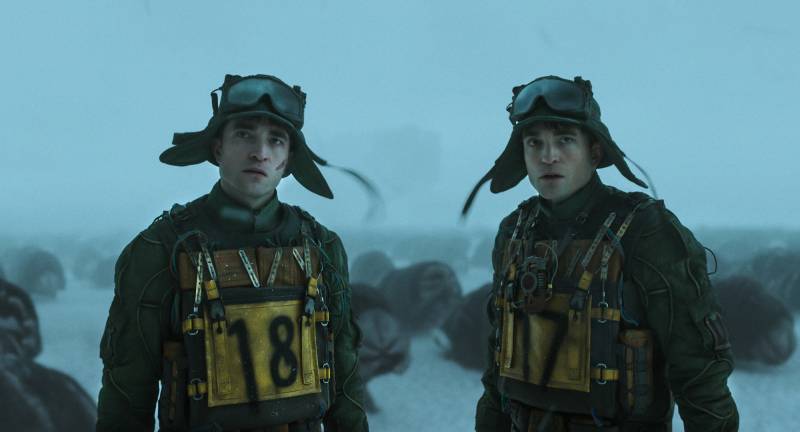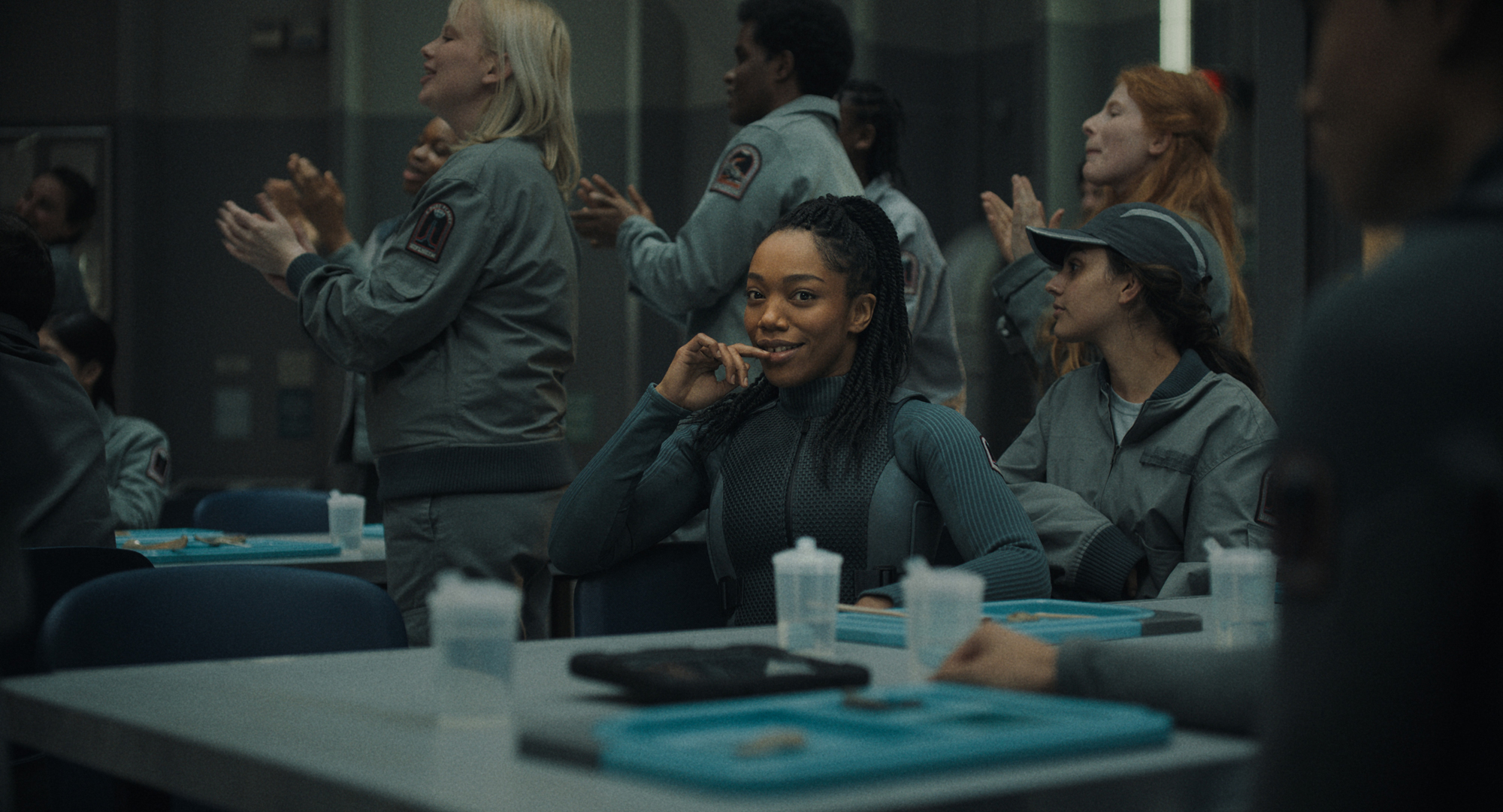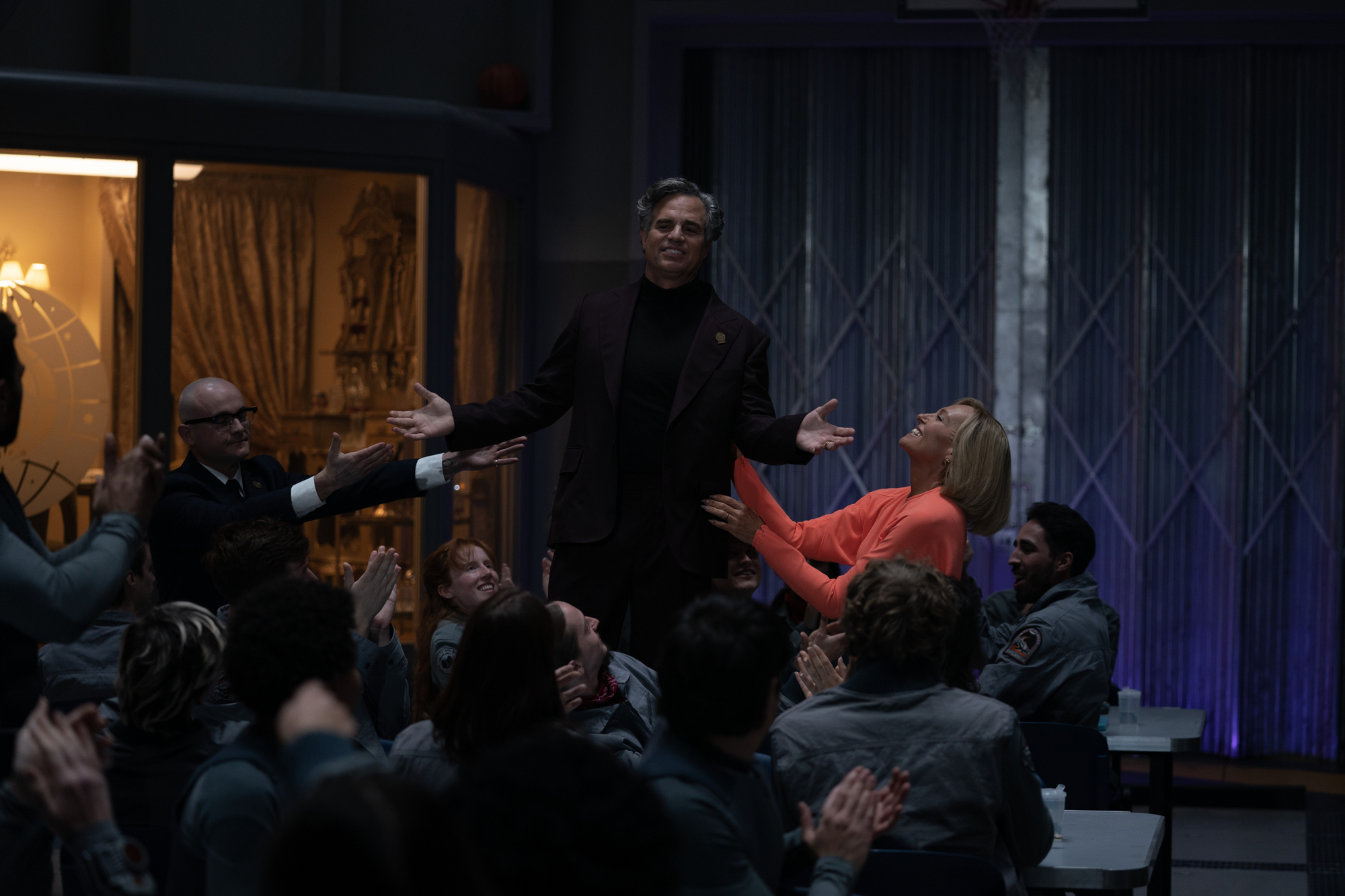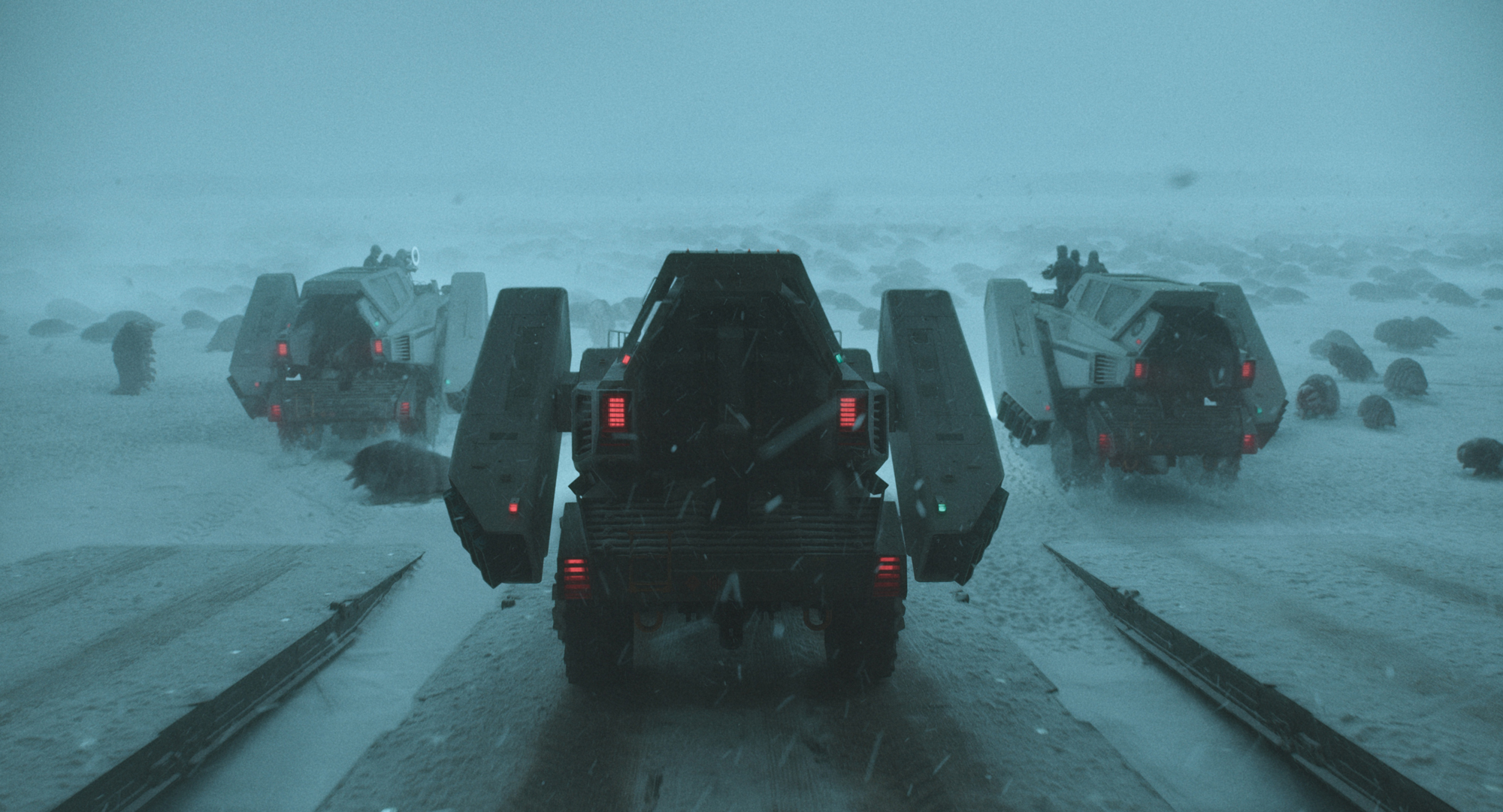Through no fault of his own, Bong Joon Ho is a man out of time. What claim can even the most unrestrained cinema satirist have on our attention when the world’s foremost provocateur, stream-of-consciousness back-flipper and fomenter of chaos occupies the White House?
Bong Joon Ho Slips Us a ‘Mickey 17’

Mickey 17 (opening Friday, March 7), Bong’s drolly amusing social critique wrapped, burrito-style, in the genre accoutrements of a science-fiction movie, is far from the South Korean writer-director’s peak of outrageousness. That would be Parasite, his out-of-nowhere Oscar-winning 2019 hit that probed the gap between the have-nots and the haves with savage and shocking fury.
Five years on, Bong isn’t as focused on the working (under)class plunging knives into the superrich. (Timing is everything — Luigi Mangione single-handedly moved that conversation from the entertainment section to the front page last December.) The proletariat’s goal in the English-language Mickey 17 is simply surviving the unceasing exploitation of labor, a mission impossible paradoxically embodied by a character whose job description is to die, and die, and die another day.
To escape the homicidal intentions of a loan shark, sad sack Mickey Barnes (Robert Pattinson) and devious business partner Timo (Steven Yeun) get hired onto a spaceship that bigwig Kenneth Marshall (Mark Ruffalo) and his wife Yifa (Toni Collette) are steering to a faraway planet. On the four-and-a-half-year journey, Mickey and cop Nasha (a righteously angry and expansively cursing Naomi Ackie) fall in love.

We learn all this via flashback; Mickey 17 opens with the titular character dazed and injured on the snow-covered planet Nilfheim. The year is 2054 and the poor guy is an “expendable” who, because he can be “reprinted” and regenerated endlessly (ain’t digital technology grand?), is given potentially fatal tasks like breathing and testing Nilfheim’s atmosphere for viruses that could wipe out the human passengers.
In what amounts to a running existential gag, Mickey is repeatedly asked by fellow travelers, “What’s it feel like to die?” I was less engaged by the philosophical implications than by the cinematic ones: How do Bong and Pattinson make us emotionally invested in the journey of a character (in his 17th iteration as the movie begins) who is not a human but a copy, a duplicate, a facsimile?
Bong’s canny plot device of Nasha and Mickey’s love affair is instrumental in getting the audience to identify with him. Pattinson’s endearing performance does the rest; the actor doesn’t carry the film so much as humanize it with his self-deprecating affect and sacrificial pratfalls that borrow ever so slightly from silent screen comedian Harold Lloyd.
The expedition’s devious-but-dumb leaders, Marshall and Yifa, are revealed not as civic-minded entrepreneurs but as eugenics-huffing supremacists with autocratic aspirations. When one of Marshall’s TV studio rallies culminates with the audience copying his raised-arm gesture — index finger pointed at the sky — I marveled at Boon’s prescience. Elon Musk’s Mars ambitions are known, but how could Boon foresee his Nazi salute?

Mickey 17’s cartoon power couple aren’t particularly menacing, however; imagine Jim and Tammy Faye Bakker playing the leads in Macbeth. The good news is that Boon doesn’t take his political metaphor all that seriously, but that brings us to the bad news: The satire has no bite.
We’ve all seen too many futuristic epics about idealistic ventures brought to ruin by ego and greed. We’ve fully assimilated the lesson: Scientific and technological advances can never overcome the flaws in human nature.
At the same time, as I alluded earlier, over-the-top fictional villains can’t compare with today’s real-world megalomaniacs. Auric Goldfinger planned a caper at Fort Knox that James Bond foiled; Trump and Musk are planning a field trip to the Kentucky bouillon depository. How do you deflate that delusion? Yes, The Great Dictator brilliantly mocked Hitler, but there’s only one Charlie Chaplin.

What sticks with the viewer more than the direct and indirect allusions to our current leaders are Mickey 17’s ecological and environmental themes. Much of Boon’s work (The Host, notably) questions human beings’ alleged higher intelligence (compared to other life forms) along with our propensity for wanton destruction. His approach is uniquely surreal in that he literally gives voice to other species.
The indigenous natives of Nilfheim, whom Mickey 17 encounters just a few minutes after we are introduced to him, are headless mammals that the people christen “creepers.” They serve numerous functions in the movie — at one point resembling a vast herd of buffalo that briefly turns Mickey 17 into a Western, and then a war movie — that the director skillfully exploits (in a good way!) for emotional and visceral effect.
By the time Nasha emerges as the heroine of the story and Pattinson as its soul, Mickey 17 has delivered ample entertainment for the buck. While I was disappointed by the lack of eye-popping compositions, a hallmark of Boon’s work, I learned one thing from this romantic comedy of the future: Whatever happens with tariffs, the United States will always enjoy a trade surplus in F-words.
‘Mickey 17’ opens in Bay Area theaters on Friday, March 7, 2025.

